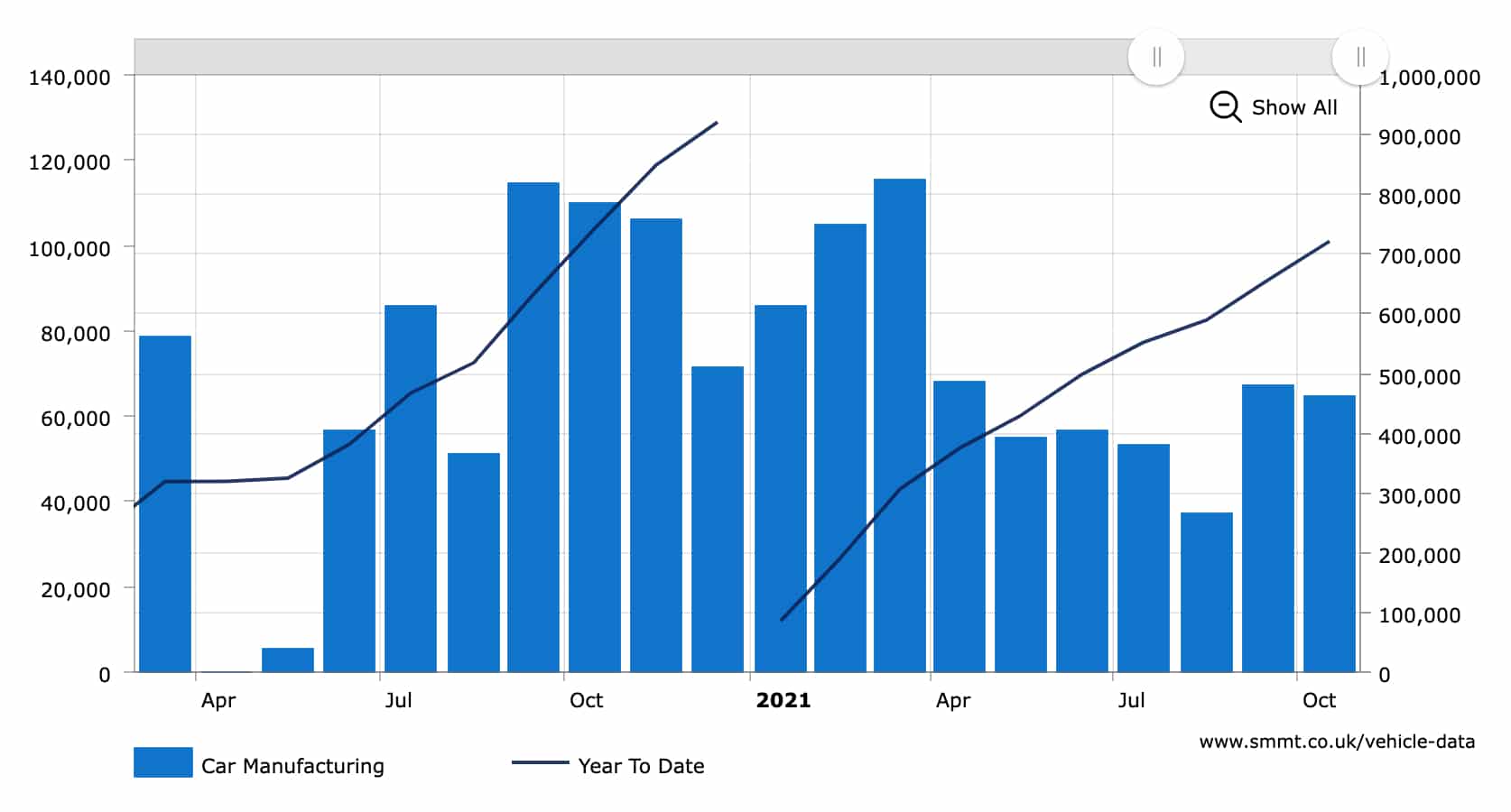UK Car Production in October Slumps to Lowest Level Since 1956
Please note that we are not authorised to provide any investment advice. The content on this page is for information purposes only.
UK car production slumped by -41.4% last month as the shortage in semiconductor chips continues, according to that latest data from the Society of Motor Manufacturers and Traders (SMMT).
At the beginning of November it was reported that new car sales in October were at their lowest since 1991.
The latest data marks the fourth consecutive monthly decline, with the global chip shortage showing no sign of improvement. Factories produced 64,729 units in October which is the worst figure for that month since 1956.
The comparison are made worse by the base effect of the closure of a UK car plant at the end of July, a deficit that the SMMT says will impact figures for a year.
UK electric car output a bright spot
Electric cars including hybrids made up 30.9% of the vehicles manufactured, with battery electric vehicles (BEVs) accounting for 17.5% of total production at 8,454 units.
Looking at how production for domestic and overseas markets breaks down, there were falls of -37.9% and -42.1%, respectively.
More than 80% of cars manufactured in the Uk are for export markets, with 60% of those going to EU markets. Exports to the EU remain tariff free. Nevertheless, EU shipments fell -29.2%, but less than the drop in shipments to the US (-67%) and Japan (-57).
Year on year production is -2.9% below 2020 at 721,505 units. And given that production in 2020 was also severely impacted by chip shortages and production stoppages, this year’s numbers are extremely poor.

UK car production set to pick up in 2022
UK car and light commercial vehicle (LCV) production is forecast to be below one million for the second consecutive year. However, production is expected to recover in 2022 to over one million, and possibly reaching 1.2 million in 2024. But those forecasts were made before news of the new B.1.1.529 Covid variant broke, which could lead to lockdowns and more car plant closures.
Mike Hawes, SMMT Chief Executive, commenting on the latest production data said in a statement: “These figures are extremely worrying and show how badly the global semiconductor shortage is hitting UK car manufacturers and their suppliers.
“Britain’s automotive sector is resilient but with Covid resurgent across some of our largest markets and global supply chains stretched and even breaking, the immediate challenges in keeping the industry operational are immense.
“Government can help the industry with measures to boost competitiveness in line with global rivals, notably in tackling high energy costs, supporting employment and training, and helping businesses whose cashflow is under pressure from these historically poor production numbers.”





